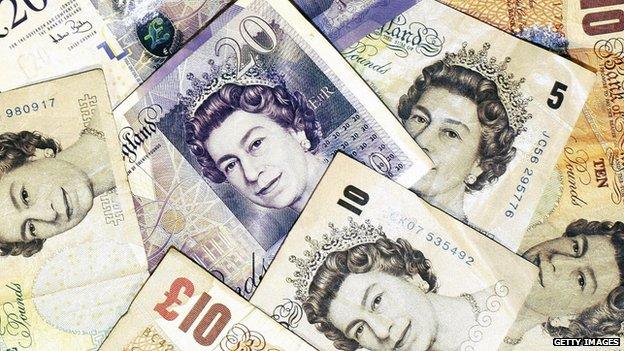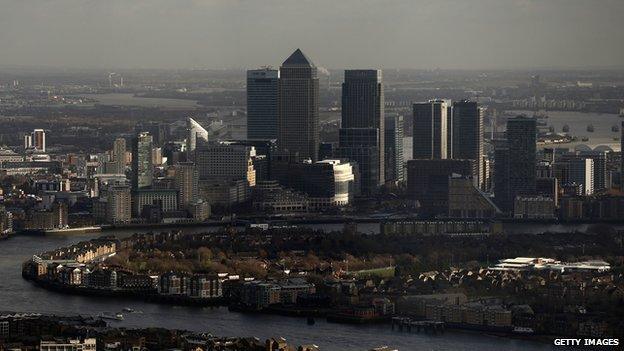Reality Check: Could the Greens change how money works?
- Published

Buried half-way through the Green Party's manifesto, external is a pretty radical suggestion that could fundamentally change how money works.
The party wants a central body to take control of the creation of money, which would require a major overhaul of the financial system.
You may be surprised to hear there is not already such a body.
There are two common misconceptions about how money currently works:
The Bank of England controls the amount of money circulating around the economy, perhaps by "printing money"
The ability of private banks to lend is limited by how much other customers have deposited in their vaults
Neither of these is quite true.
The vast majority of money is created by private-sector banks - not the Bank of England.
Positive Money, a group that argues for reforming the monetary system, says 97% of money is created by banks.
Each time a bank makes a loan, it essentially creates money.
And it is basically up to banks to decide how many loans they create.
Money then disappears when the loans are paid back.
So the Bank of England actually does not have much control over how much money there is circulating around the UK economy.
Cash in vaults
Also, a bank's ability to lend is not really restricted by the amount of money held in its vaults.
Textbooks often refer to the reserve ratio, which says that for every loan a bank makes, the lender should set aside some cash, which it cannot lend out to other people.
This would require banks to actually remove money from circulation and keep it locked away in their vaults or the electronic equivalent.
But this has never really happened in the UK.
Instead, there is financial regulation governing how banks manage their balance sheets.
Banks need to maintain a buffer to cover losses arising from when borrowers default on their loans.
The size of the buffer depends partly on the riskiness of the banks' assets.
Under this system, the more profit a bank makes, the more it can afford to lend - even while maintaining a cash buffer.
These rules might restrict the amount banks lend when the economy is doing badly, but they do not affect how much banks can lend when the economy is doing well.
Advocates of reform say the fact the current system leaves it up to banks to decide how much money is in the system is problematic.
Too much money can lead to financial over-exuberance and pump up asset bubbles, while too little money can cause funding problems for individuals and companies.
Positive Money argues the current system can have numerous other negative impacts too, such as increasing levels of household debt and inflating property prices.
The Greens want a central body to take on the job of creating money: "a new monetary authority, independent of day-to-day government control".

The reforms would be a huge shake-up in the way City institutions operate
This would mean commercial banks would become "no more than the custodians of publicly created money in current accounts".
In other words, the amount of money in the economy would no longer depend on banks' willingness to lend.
If the policy were to be implemented, it would mark a step-change in how money works.
Iceland is already considering introducing a similar system, but if the UK were to undertake such reform, it would be the first major financial centre to do so.
Aside from putting more controls on the amount of lending and debt in the economy, the Greens say this would allow banks to fail more safely.
As the Greens acknowledge, their policy would trigger a radical overhaul of how the monetary system works.
They would create a powerful new body, reform how commercial banks operate and change our understanding of money.
It would require years of debate, consultation and legislative wrangling.
Transitional arrangements would need to be put in place to ease the economy through the change.
And this is all predicated on the idea that Parliament would actually agree on both the need for change and the mechanics for implementing it.
While it looks unlikely such a policy would be implemented in the near future, it raises some interesting topics for debate.

Election 2015 - Reality Check

What is the truth behind the politicians' claims on the campaign trail? Our experts investigate the facts, and wider stories, behind the soundbites.
Read latest updates or follow us on Twitter @BBCRealityCheck, external
